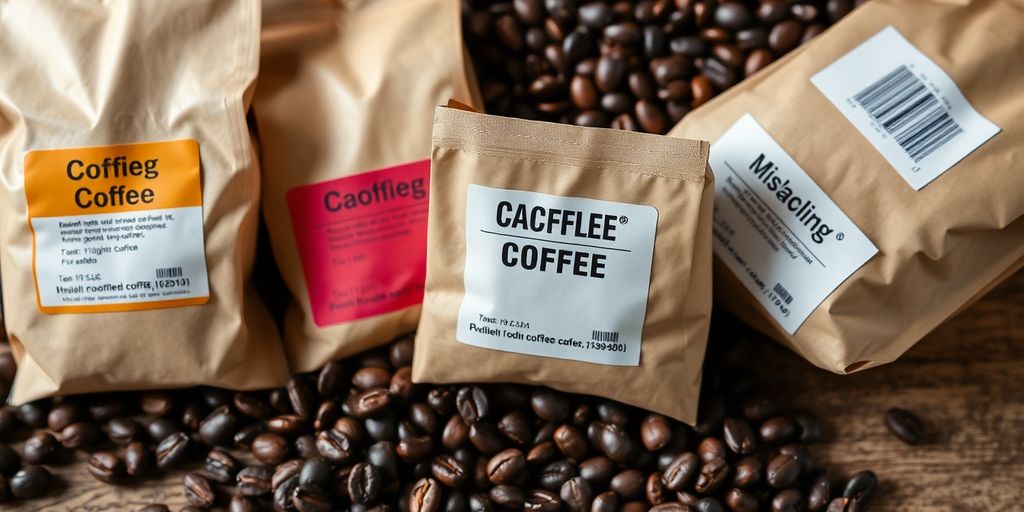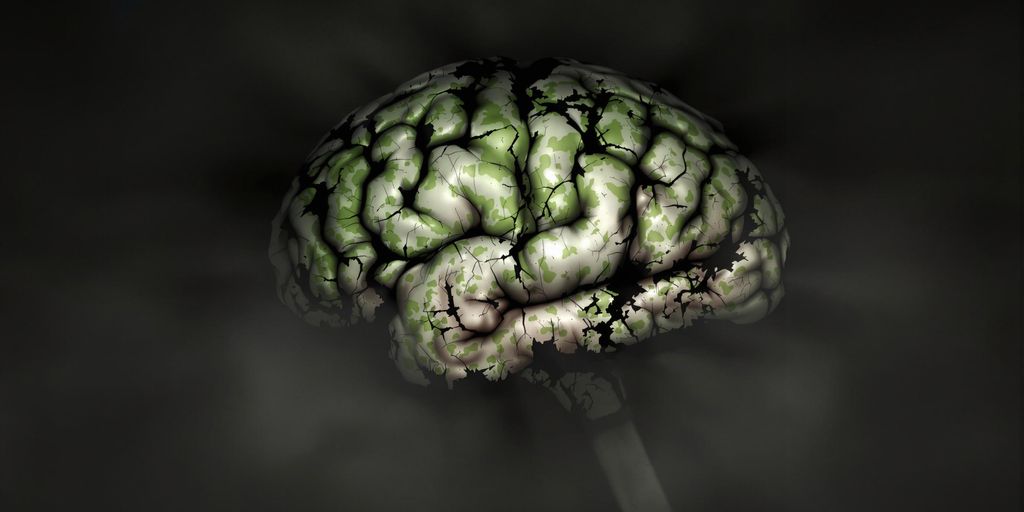Recently, the FDA announced a recall of ground coffee affecting 15 states due to a labeling error. This recall involves over 4,000 packages that were mislabeled, raising concerns about consumer safety. Here’s what you need to know about the situation, including the details of the recall, affected states, and how to respond if you’ve purchased the product.
Key Takeaways
- The FDA has recalled over 4,000 packages of ground coffee due to mislabeling.
- The recall affects 15 states, highlighting the widespread distribution of the product.
- Consumers can return the recalled coffee for a refund or replacement.
- The coffee was misidentified as decaffeinated, posing potential risks for sensitive individuals.
- SpartanNash, the distributor, has taken immediate action to ensure consumer safety.
Overview Of The FDA Recall
Details Of The Mislabeling Issue
So, there’s this coffee recall happening, and it’s all because some coffee was mislabeled. Basically, some packages of coffee that were supposed to be decaf were actually regular, caffeinated coffee. It’s a pretty big deal because people who are sensitive to caffeine or have health conditions might accidentally consume it, thinking they’re drinking decaf. This coffee recall is definitely something to pay attention to if you’re a coffee drinker.
Number Of Affected Packages
Okay, so we’re talking about a significant amount of coffee here. Thousands of pounds of coffee are being recalled across 15 states. It’s not just a few bags; it’s a widespread issue. The exact number of individual packages is still being determined, but it’s enough to warrant a serious FDA recall. Here’s a quick breakdown:
- Total Weight: Thousands of pounds
- Number of States: 15
- Type of Coffee: Ground coffee
Classification Of The Recall
The FDA has classified this as a Class II recall. What does that mean? Well, it’s not the most severe type of recall, but it’s still serious. A Class II recall means that the product could cause temporary or medically reversible adverse health consequences. In this case, someone drinking regular coffee thinking it’s decaf might experience things like increased heart rate, anxiety, or trouble sleeping. It’s not likely to cause a major health crisis, but it’s enough of a risk that the FDA is taking action.
The FDA’s classification highlights the potential, though not necessarily severe, health risks associated with the mislabeled coffee. It’s a reminder that even seemingly minor labeling errors can have real consequences for consumers.
Impacted States In The Recall
List Of The 15 States
Okay, so the coffee recall isn’t hitting every state, thankfully. But a fair few are affected. The products in question were distributed to stores in fifteen states across the country. Here’s the rundown:
- Colorado
- Iowa
- Illinois
- Indiana
- Kansas
- Kentucky
- Michigan
- Minnesota
- North Carolina
- North Dakota
- Nebraska
- Ohio
- South Dakota
- Wisconsin
- Wyoming
Distribution Areas
It’s important to understand that the coffee wasn’t necessarily sold in every corner of these states. Distribution usually centers around major cities and their surrounding areas, supplied by regional distribution centers. So, if you’re in a more rural part of, say, North Dakota, the chances of finding the recalled coffee might be lower, but it’s still worth checking. Keep an eye on food recall notices for the latest updates.
Consumer Reach
Even though it’s "only" 15 states, that still represents a pretty significant chunk of the US population. Millions of consumers could potentially have purchased the mislabeled coffee. The recall is designed to prevent any health risks associated with the mislabeling, especially for people with allergies or sensitivities to certain ingredients that might not be accurately listed.
The big takeaway here is to double-check your coffee if you live in one of these states. Even if you don’t think you bought the specific brand, it’s always better to be safe than sorry. A quick look at the UPC code and best-by date could save you a lot of trouble.
Product Information
Description Of The Recalled Coffee
Okay, so here’s the deal. The recalled coffee is, well, coffee. Specifically, it’s a certain brand and type that was distributed across those 15 states we talked about. The big issue is that the labeling on the packaging doesn’t accurately reflect what’s inside. It might say one thing, but it’s actually something else entirely. This could be a different blend, a different roast, or even contain ingredients not listed on the label. It’s a pretty big problem for people with allergies or specific dietary needs.
UPC Code And Best-By Date
To figure out if you have the recalled coffee, you’ll need to check the UPC code and the best-by date on the package. These are the key identifiers that will tell you if your coffee is part of the recall. I don’t have the exact numbers here, but the FDA recall announcement will have a complete list. Make sure you check every package you have, even if you think it’s the right kind. It’s better to be safe than sorry. Here’s what you should look for:
- UPC Code: Compare the code on your package to the official list.
- Best-By Date: Check if the date falls within the recalled range.
- Package Size: Confirm the size matches the recalled product description.
Manufacturer Details
The coffee is distributed by SpartanNash lower cabinetry. They’re the ones who issued the recall after discovering the mislabeling issue. It’s important to note that SpartanNash isn’t necessarily the manufacturer of the coffee itself. They’re the distributor, meaning they handle the packaging and getting it out to stores. The actual manufacturer might be a different company entirely, but SpartanNash is taking responsibility for the recall and working to fix the problem.
It’s a bit of a mess, honestly. You’d think labeling would be pretty straightforward, but mistakes happen. The important thing is that the company is taking action to get the affected products off the shelves and protect consumers.
Health Implications
Potential Risks Of Mislabeling
Mislabeling, especially in food products, can lead to a variety of health issues. For example, if a coffee product is mislabeled regarding its caffeine content, individuals sensitive to caffeine might unknowingly consume it, leading to anxiety, insomnia, or heart palpitations. More seriously, mislabeling can hide the presence of allergens or other harmful substances. This is why accurate labeling is so important.
FDA Class II Recall Explanation
An FDA Class II recall is initiated when a product may cause temporary or medically reversible adverse health consequences, or where the probability of serious adverse health consequences is remote. It’s not the most severe type of recall (that’s Class I), but it still indicates a potential health risk. This classification means the FDA has determined that exposure to the mislabeled coffee could pose a threat, though not a life-threatening one. It’s a step up from a Class III recall, which is for minor labeling issues that aren’t expected to cause health problems.
Consumer Safety Concerns
Consumer safety is the top priority in any recall situation. When a product is mislabeled, consumers may not be able to make informed decisions about what they’re consuming. This can be particularly concerning for people with allergies, sensitivities, or specific health conditions. Here are some key concerns:
- Allergic Reactions: Undeclared ingredients can trigger allergic reactions.
- Medication Interactions: Certain ingredients might interact negatively with medications.
- Unintentional Overconsumption: Misleading information about caffeine levels could lead to overconsumption.
It’s important for consumers to stay informed about recalls and to check their products against recall lists. If you have any concerns about a recalled product, contact your healthcare provider or the manufacturer immediately. Don’t take any chances with your health.
It’s always better to be safe than sorry when it comes to food recalls. Stay informed, check your labels, and don’t hesitate to take action if you think you might have a recalled product. The FDA’s recall process is there to protect us, but we also need to do our part.
Response From The Distributor
Statement From SpartanNash
SpartanNash, the distributor of the mislabeled coffee, has released a statement addressing the situation. The company emphasizes that consumer safety is their top priority. They acknowledged the mislabeling issue and expressed their commitment to taking swift action to rectify the problem. It’s a pretty standard response, but it’s good to see they’re at least saying the right things.
Actions Taken Post-Recall
Following notification from their supplier about the labeling error, SpartanNash says they initiated the recall on March 13th. According to their statement, all recalled product was removed from store shelves and destroyed before the FDA even classified it as a Class II recall. That’s pretty quick action, if true. Here’s a quick rundown of the actions they claim to have taken:
- Immediate notification to retail partners.
- Removal of all affected products from shelves.
- Coordination with the supplier to investigate the root cause.
Commitment To Consumer Safety
SpartanNash is trying to reassure consumers that they’re taking this seriously. They’re working to prevent similar incidents in the future. It’s all about maintaining trust, right? I guess we’ll see if they actually follow through with their promises. It’s easy to say you care about consumer safety, but the real test is in the actions you take.
The company reiterated its dedication to upholding the highest standards of quality and safety across its entire product range. They are conducting a thorough review of their labeling processes to prevent future errors. This includes enhanced training for employees and stricter quality control measures at every stage of distribution.
What To Do If You Have The Product
Return Process For Consumers
If you happen to have purchased the recalled coffee, don’t panic! The first step is to check if the UPC code and best-by date on your package match those listed in the recall notice (0 70253 11080 and before 08/03/25). If they do, the most straightforward action is to return the product to the store where you bought it.
Refund Or Replacement Options
Most retailers are offering a full refund or a replacement for the recalled coffee. Policies can vary a bit from store to store, so it’s a good idea to check with the specific location where you made your purchase. Typically, you’ll need to bring the product itself and proof of purchase, if you have it. However, even without a receipt, many stores will still offer a refund or store credit.
Contact Information For Queries
If you have any questions or concerns about the recall, or if you’re unsure about the return process, don’t hesitate to reach out to SpartanNash, the distributor. You can find their contact information on their website or by calling their customer service line. They should be able to provide you with detailed instructions and answer any specific questions you might have. It’s always better to be safe than sorry, so don’t hesitate to check sunscreen ingredients and get in touch if needed.
It’s important to act promptly if you have the recalled coffee. Returning the product ensures your safety and allows you to receive a refund or replacement, minimizing any inconvenience caused by the recall.
Timeline Of The Recall

Date Of Recall Announcement
The voluntary recall was initiated by Massimo Zanetti Beverage USA on March 13, 2025, after discovering the labeling error. The FDA then classified it as a Class II recall on March 25, 2025. This classification indicates that exposure to the mislabeled product might lead to temporary or medically reversible health issues. SpartanNash stated they issued the recall immediately after notification from their supplier.
Timeline Of Events Leading To Recall
Here’s a quick rundown of the key events:
- Early March 2025: Supplier identifies mislabeling issue.
- March 13, 2025: Massimo Zanetti Beverage USA initiates a voluntary recall.
- Mid-March 2025: SpartanNash removes the product from shelves and destroys it.
- March 25, 2025: FDA classifies the recall as Class II.
- March 28, 2025: Public announcement and media coverage increase.
The speed of the recall, from the initial discovery to the removal of products from shelves, highlights the responsiveness of both the distributor and the manufacturer to potential consumer risks.
Future Monitoring Plans
While there aren’t specific details available about future monitoring, it’s reasonable to assume that both Massimo Zanetti Beverage USA and SpartanNash will be implementing stricter quality control measures to prevent similar incidents. This likely includes more rigorous label checks and verification processes throughout the production and distribution chains. Consumers can stay informed by monitoring FDA recall announcements and company statements.
Consumer Awareness And Education
Importance Of Label Checking
It’s easy to just grab something off the shelf, especially if you’re in a hurry. But taking a few extra seconds to check the label can save you from a lot of potential trouble. Look for things like the product name, ingredients (especially if you have allergies), the UPC code, and the best-by date. These details are there for a reason, and they’re your first line of defense against recalls and other issues.
How To Identify Recalled Products
Okay, so a recall is announced. Now what? First, find the official recall notice. These are usually posted on the FDA website or the distributor’s site. Pay close attention to the specific details mentioned: the brand name, product size, UPC code, and any best-by dates. Compare these details to the product you have at home. If they match, you’ve got a recalled item. Don’t just rely on memory; double-check everything.
Resources For Consumers
There are several places you can go to stay informed about recalls and food safety. Here are a few:
- FDA Website: The FDA is the primary source for recall information. You can sign up for email alerts or check their website regularly.
- Distributor’s Website: Check the website of the company that makes or distributes the product. They often have recall information posted prominently.
- News Outlets: Major news organizations usually report on significant recalls. Keep an eye on your local and national news.
Staying informed is half the battle. By using these resources, you can protect yourself and your family from potentially harmful products. It’s all about being proactive and taking a little time to stay in the loop.
Similar Recalls In The Past
History Of Coffee Recalls
It’s interesting to note that this isn’t the first time coffee has been recalled. While large-scale coffee recalls aren’t super common, they do happen. Sometimes it’s due to contamination, other times it’s a labeling issue, like the current coffee recall. These events can range from small, regional recalls to larger ones affecting multiple states. It really just depends on the scope of the problem and how widely the affected product was distributed.
Common Reasons For Food Recalls
Food recalls happen for a bunch of reasons. Here are a few:
- Mislabeling: This is when a product’s label doesn’t accurately reflect what’s inside, like the caffeinated vs. decaf issue we’re seeing now.
- Contamination: This could be anything from bacteria (like Salmonella or E. coli) to foreign objects finding their way into the food.
- Undeclared Allergens: If a product contains an allergen (like peanuts or milk) that isn’t listed on the label, it can trigger a recall.
- Manufacturing Defects: Sometimes, there are problems with how the food is processed or packaged, leading to a recall.
Recalls are a pretty regular part of the food industry. They’re a way to correct mistakes and keep consumers safe, even though they can be a hassle.
Impact On Consumer Trust
Recalls can definitely shake consumer trust. When people see a product they regularly buy being recalled, it can make them question the safety of other products from the same brand, or even the entire food system. Transparency and how a company handles the recall are key. If a company is upfront about the issue and takes quick action to fix it, it can help rebuild that trust. But if they seem to be hiding something or dragging their feet, it can make things even worse. It’s a delicate balance, and companies need to prioritize consumer safety and open communication to maintain a good reputation.
Final Thoughts on the Coffee Recall
In summary, if you bought the Our Family Traverse City Ground Coffee, it’s best to check your pantry. The recall affects over 4,000 packages across 15 states due to a mix-up with the labeling. While the risk of serious health issues is low, it’s still a good idea to return the product for a refund or replacement. SpartanNash, the distributor, acted quickly to pull the affected coffee from shelves. Keeping an eye on recalls like this helps ensure our safety, so stay informed and check your products regularly.
Frequently Asked Questions
What coffee is being recalled?
The recalled coffee is Our Family Traverse City Cherry Decaf Light Roast Ground Coffee, sold in 12-ounce bags.
Why is the coffee being recalled?
The coffee was mislabeled as decaffeinated, which could confuse consumers.
How many packages are affected by the recall?
Over 4,000 packages of the coffee are being recalled.
What states are involved in the recall?
The recall affects coffee sold in 15 different states across the U.S.
What should I do if I have the recalled coffee?
If you have the recalled coffee, return it to the store where you bought it for a refund or replacement.
What is a Class II recall?
A Class II recall means the product may cause temporary health issues, but the risk of serious health problems is low.
Who is the distributor of the recalled coffee?
The coffee was distributed by The SpartanNash Company based in Grand Rapids, Michigan.
How can I find out more information about the recall?
You can check the FDA’s website or contact the store where you purchased the coffee for more details.




